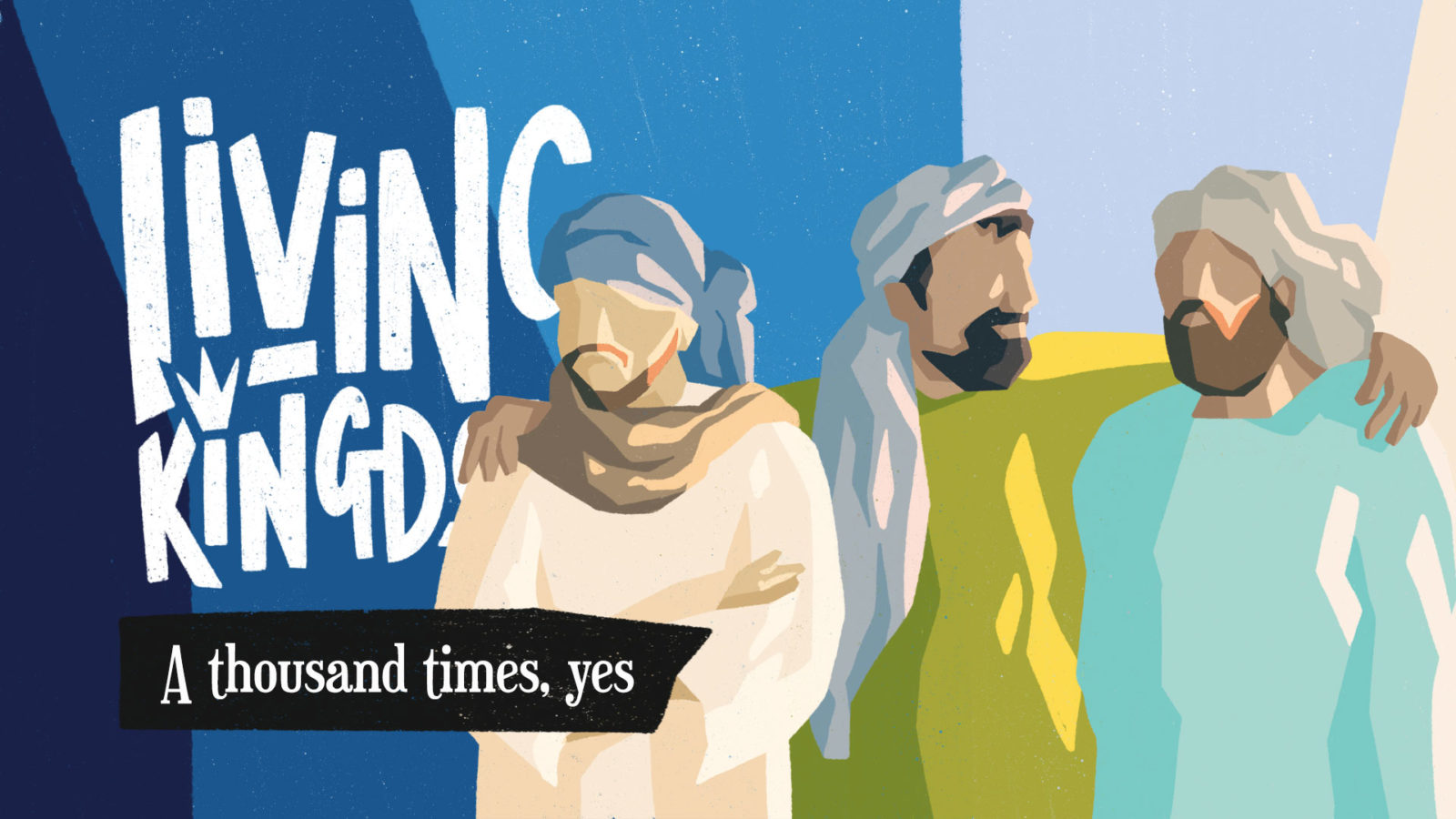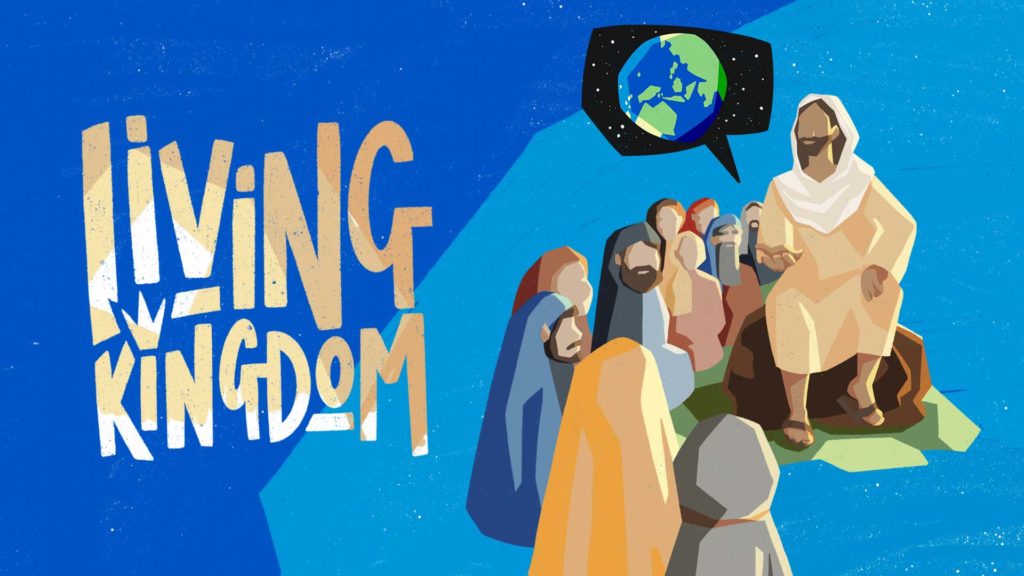Parable of the sons
“There was a man who had two sons. He went to the first and said, ‘Son, go and work today in the vineyard.’ ‘I will not,’ he answered, but later he changed his mind and went. Then the father went to the other son and said the same thing. He answered, ‘I will, sir,’ but he did not go. Which of the two did what his father wanted?’ ‘The first,’ they answered” (Matthew 21:28-31).
How many times have you said you’d do something and then didn’t follow through with it? Maybe you planned to get up early, but slept in. Perhaps you had a reading goal for the year and fell terribly short. And I’m sure at some point you’ve scheduled in a workout that just didn’t happen.
Yeah hi, I’m guilty of this, too!
In Matthew 21:28-32, we find the parable of the two sons, who seem to have a similar problem with commitment. These two sons have a father who owns a vineyard. When asked to work in the vineyard, the first son originally says “no”. Some translations say he later “regretted it” and some say he “repented and went”.
But what caused this regret? Was it guilt? Was it that he had nothing better to do? Perhaps a sudden burst of motivation? Maybe a podcast or a self-help book really inspired him to get cracking.
And then there’s the second son. He originally said yes to working, but we don’t know why he changed his mind and didn’t go. Busyness? Anxiousness? Laziness? Was he too scared to say no? Maybe his no-show was the result of people-pleasing and a lack of clear communication. Who knows? All those examples are pure speculation, but I dare say they’re reasons that you and I haven’t fulfilled our promises in the past.
My first reaction to re-reading this parable was, Wow! A whole fable on indecisiveness? Could anything be more relevant to me as a human? Like me, you may find yourself having great intentions, but falling short. Or you’ve ended up doing even more than you’ve planned or committed to. I’m sure in some ways we’ve all been both sons at different times. But unpacking the story more closely reveals that it’s not a lesson on indecisiveness; nor is it a ploy for productivity. So, what is it really about?
First, I want to refer to an interesting book I recently read. It’s called Tiny Habits by BJ Fogg and it explains how to realistically design desired behaviour into your life. Fogg’s theory is that the best way to reach our long-term goals is to break them down into the tiniest of habits. And he means tiniest. For example, your goal may be to run a half marathon. You know that will take a lot of effort, and some days you’ll feel motivated to run and some days you just won’t be bothered at all. So, instead of focusing on the looming 21 kilometres ahead of you, Fogg would suggest to break your running goal into the smallest possible component—in this example, just putting on your running shoes. If you make this your daily goal, it’s something you should be able to do on your busiest, most exhausting day.
Now, some days you’ll far exceed this step and get quite a few kilometres in, but if simply putting your shoes on is the primary goal, you give yourself permission to feel accomplished every single day. But underlying this theory, Fogg says there is one key principle fundamental in assisting change and that is: “We change best by feeling good, not by feeling bad.”
It is this feeling that makes it easier to build momentum, so rather than getting buried in overwhelm by a big challenge, you leverage the good feeling of many small successes to eventually achieve a large one. While I like the sentiment, I think understanding the parable of the sons could help us rework it through a Christian lens.
After describing the actions of both sons, Jesus asks which one ended up doing the will of his father (Matthew 21:31). It was the first; the son who originally said no, but then went and worked. It was the son who changed.
The reality is, if we claim to be a son (or daughter) of the Father, excuses don’t really factor into not doing His will. No matter how good his intentions, the second son didn’t do the will of the Father. He said yes but didn’t follow through.
Perhaps then, we could rewrite Fogg’s notion of “changing best by feeling good”, to: “We change best because of our relationship with the Father”. But, hang on. We shouldn’t be defined by what we do, should we? After all, having inherent value from being designed in God’s image is one of the most beautiful tenets of the Christian experience. We are infinitely loved, no matter how good or bad we are, right?
Right. But some might use this reasoning to factor change out of the equation, and the parable of the sons keeps us balanced in our thinking.
That’s because in reading it, we realise that being “the son” has nothing to do with actually completing the Father’s will. Growing up in the Father’s house, knowing the Father’s rules, being a part of the Father’s community, doesn’t actually mean anything unless we say yes and follow through with it. Even if we originally said we wouldn’t. Just like the first son who said no and then ended up working, it was his change in behaviour that qualified him in doing the Father’s will.
This reveals that the story is not at all about indecisiveness versus productivity. And it actually isn’t just about being a child of God. It’s much more than that. It reinforces the importance of actively living out our relationship with the Father.
We know this because Jesus extends the parable to those outside the father-son example in this story. Matthew 21:31 continues with, “Assuredly I say to you that tax collectors and harlots enter the kingdom of God before you.” Jesus makes a bold point here. After all, the reason He’s telling this parable is because the chief priests—the religious leaders—are trying to undermine His authority. They were familiar with the scriptures and followed the religious rules, but they were extremely self-righteous. To be told that the people they most judged would enter the kingdom of God before them, would have been radical to hear and uncomfortable to internalise. Yet again, Jesus is calling them out on their shallow, bigoted approach to religion.
Personally, I find this confronting yet really beautiful, because what we choose today, not what we’ve chosen in the past, is what allows us to live a beautiful life as His child. The Father didn’t hold it against the first son for saying no in the first place. He also didn’t give a free pass to the second son for having said yes originally. We all have an equal opportunity to be a son or daughter of the Father, and we are all called to then do His will.
So, despite my familiarity with the Bible, no matter my involvement in church activities, regardless of how long I’ve been a Christian, this has challenged me to rethink how genuine I really am in my relationship with Jesus. Galatians 3:26 says it simply: “For you are all sons of God through faith in Christ Jesus.” By grace, through faith, we are able to change best because of our relationship with the Father.
Even if we’ve said no to God a thousand times, it is the “yes” at the end that matters. And thank God He always says yes to us.
Sharna Kosmeier enjoys jogging in the morning, creating content for Avondale University during the day, and reading, scrolling Instagram and discussing theology, at night.







